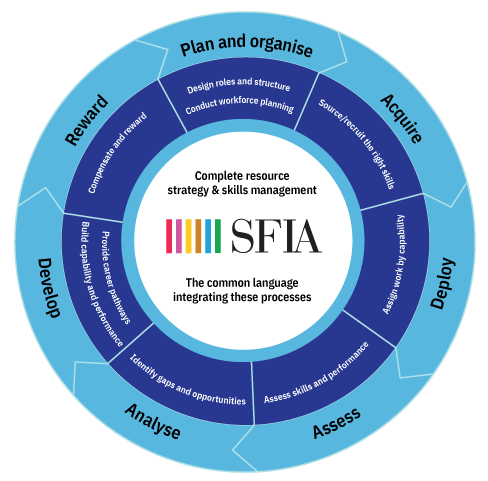El siguiente perfil establece las competencias que debe adquirir un titulado en el “Máster en sistemas de información digital”. Al tratarse de un máster de carácter profesional, estas competencias deben proporcionar al alumno una formación especializada, tanto teórica como práctica y aplicada, que le capacite para trabajar en distintos entornos laborales: unidades de información de todo tipo, así como en cualquier organización que trabaje con datos/documentación e información digital.
Competencias Básicas:
CB6: Poseer y comprender conocimientos que aporten una base u oportunidad de ser originales en el desarrollo y/o aplicación de ideas, a menudo en un contexto de investigación.
CB7. Los estudiantes sabrán aplicar los conocimientos adquiridos y su capacidad de resolución de problemas en entornos nuevos o poco conocidos dentro de contextos más amplios (o multidisciplinares) relacionados con su área de estudio
CB8. Los estudiantes serán capaces de integrar conocimientos y enfrentarse a la complejidad de formular juicios a partir de una información que, siendo incompleta o limitada, incluya reflexiones sobre las responsabilidades sociales y éticas vinculadas a la aplicación de sus conocimientos y juicios.
CB9. Los estudiantes sabrán comunicar sus conclusiones –y los conocimientos y razones últimas que las sustentan- a públicos especializados y no especializados de un modo claro y sin ambigüedades.
CB10. Los estudiantes poseerán las habilidades de aprendizaje que les permitan continuar estudiando de un modo que habrá de ser en gran medida autodirigido o autónomo.
Competencias generales (es optativo pero la aplicación informática exige una CG1)
CG1. Poseer los conocimientos y las habilidades necesarias para seleccionar, gestionar, organizar y preservar la documentación y la información digital para que pueda ser utilizada por terceros
Competencias Específicas
CE1. Capacidad para diseñar, planificar y organizar sistemas, unidades y servicios de información digital.
CE2. Capacidad para seleccionar y aplicar las técnicas adecuadas, en función de las necesidades de los usuarios, en la selección, organización, acceso y recuperación, conservación, difusión e intercambio de la información digital.
CE3. Desempeño en el uso de las tecnologías de la información que se emplean en las unidades y servicios de información digital.
CE4. Capacidad para aplicar las técnicas para la obtención, tratamiento e interpretación de datos sobre el entorno de las unidades y servicios de información digital y el estudio, la gestión y la evaluación de los procesos de producción, transferencia y uso de la información digital.
CE5. Capacidad para utilizar las herramientas informáticas para la implantación, desarrollo y explotación de sistemas de información digital.
CE6. Capacidad para analizar, asesorar y formar a productores, usuarios y clientes de servicios de información digital.
MARCOS DE COMPETENCIAS DIGITALES CONSIDERADAS EN EL APRENDIZAJE
Marco Internacional de habilidades y competencias para un mundo digital SFIA-8

Competencias para la empleabilidad. Desarrollo SIPPE
